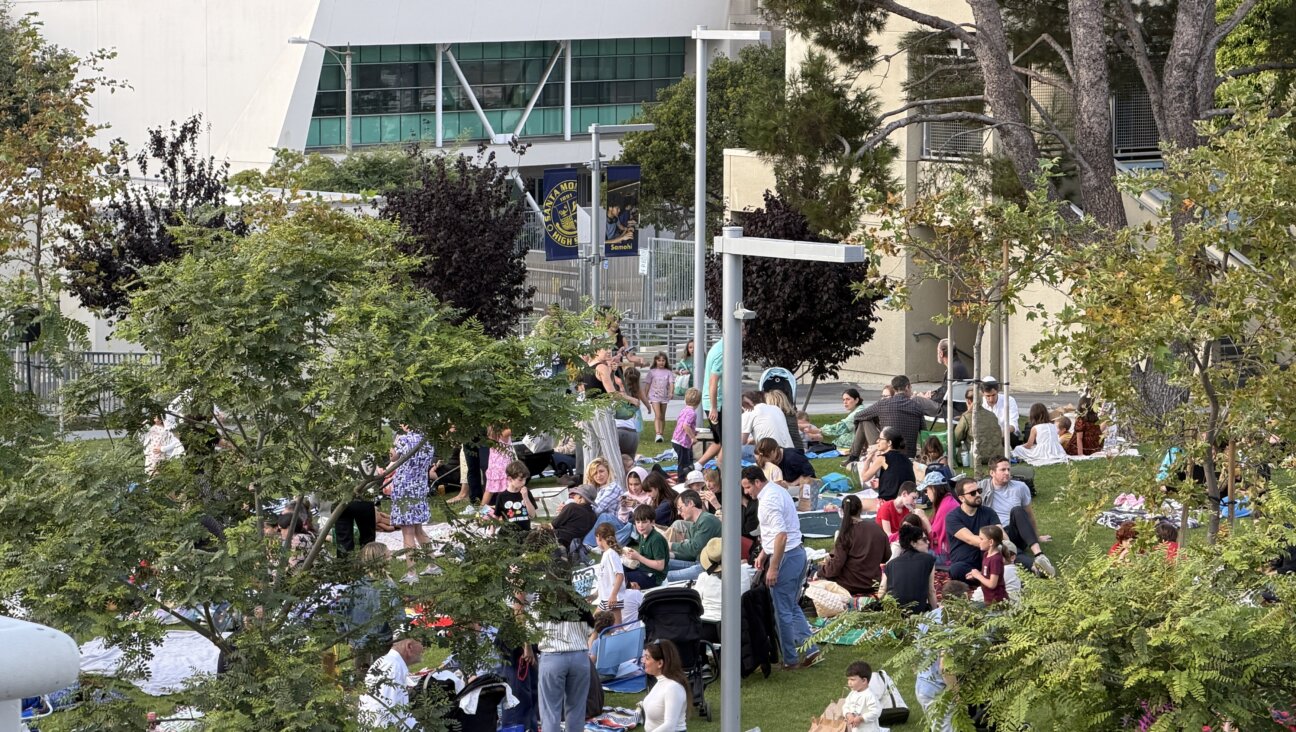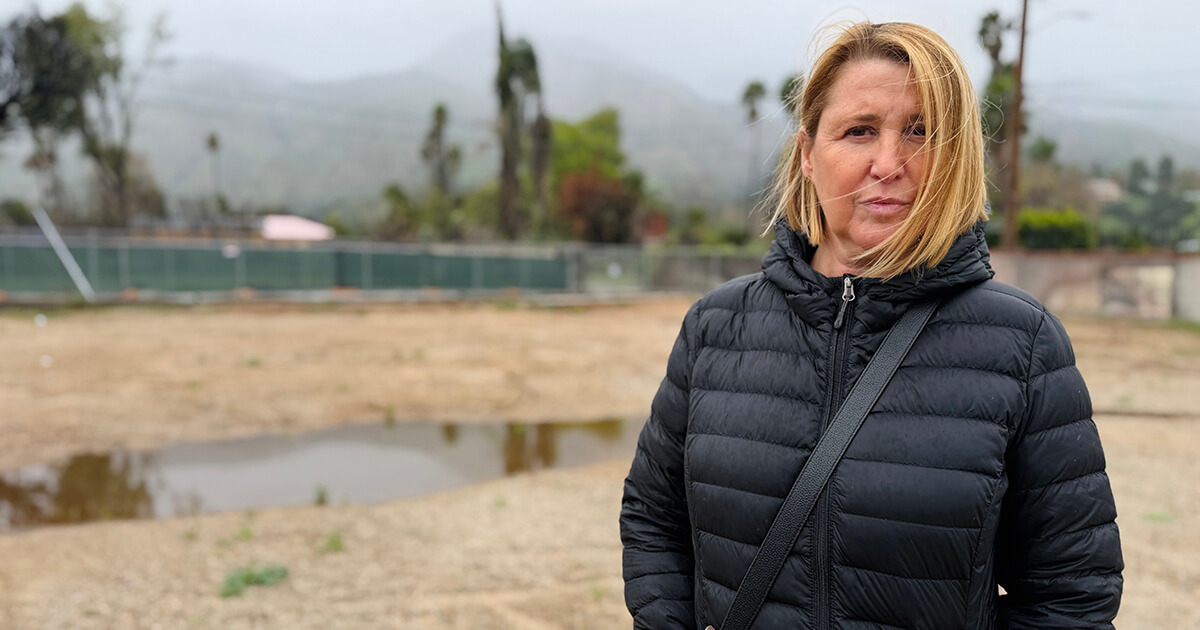In Baltimore, Aged Now Get Services Where They Live
BALTIMORE — Helen Salzman inches across the lipstick-red carpet to welcome guests into her cozy, two-story frame cottage.
Her delicately appointed dining room is immaculate, her off-white sectional looks spanking new and the kitchen floor is well scrubbed. But the legally blind Salzman does not notice that her plush rug is pulled dangerously loose in several places. Salzman, 88, lives alone in a house on a tree-lined street in Baltimore. She is unable to read her mail, change a light bulb or rake her leafy lawn. She dreads visiting the doctor for fear of being left stranded by the city’s sporadic shuttle-bus service. But home is where Salzman’s heart has been for the past 59 years, and she does not plan to move.
Just up Park Heights Avenue, the main drag through northwest Baltimore’s tight-knit Jewish section, Sylvia Schmidt, 83, tells a different story. Her apartment building, The Embassy, has participated for the past five years in a revolutionary senior-care program that brings services into residential areas with dense populations of seniors, letting them enjoy the security of an assisted-living facility without moving into an institution.
The program, known as Naturally Occurring Retirement Communities, or NORCs, provides Schmidt with stress-management counseling, social programs and a mini-bus that she can reserve for pick-up and drop-off virtually anytime and anywhere.
“It means I could be independent, and I like it that way,” said Schmidt, adorned in an attractive string of pearls that outshines her medical identification necklace indicating that she is asthmatic.
Now a new, $6 million federal grant is being used by a handful of social-service agencies to take community-based elder care one step further. The goal: to bring the vital services of NORCs, which began in vertical apartment complexes, to suburban homeowners like Salzman. The federated Jewish philanthropic system, which conceived and still leads the NORC charge, secured the $6 million grant for distribution to 13 local federations nationwide, each of which is creating its own NORC.
The Baltimore community is one of a handful that are using their share to devise ways of moving NORCs to the suburbs.
“We created an expanded program called Senior Friendly Neighborhood,” said Kenneth Gelula, executive director of Comprehensive Housing Assistance Inc., or CHAI, which coordinates the Baltimore NORC program. Gelula said that the new federal funding, now in its second year, would help deliver services to between 300 and 500 homeowners in Baltimore in addition to the 13 buildings and apartment complexes now being served.
The Baltimore NORC program is funded in part by the Harry and Jeanette Weinberg Foundation and is a partnership of the Weinberg-Park Heights JCC, Jewish Family Services of Central Maryland and CHAI, all constituent agencies of The Associated: Jewish Community Federation of Baltimore.
The Jewish Federation of Greater Washington also plans on using its portion of the federal grant to bring NORCs to a community that serves both high-rises and private homes, a spokeswoman said.
NORCs took off in New York in 1986 as the brainchild of what is now UJA-Federation of New York. Since then the program has won the hearts of several members of Congress; they in turn agreed this year to almost double the amount of federal funding allocated to NORCs in 2002, even as government spending is being slashed at all levels.
Despite the growth of NORCs services, the programs continue to be overseen by Jewish welfare federations.
“We’ve got 15 million Americans in this environment” of naturally aging communities, said Diana Aviv, vice president for public policy of United Jewish Communities, the roof body of North American Jewish federations. “It seemed to me if we were able to get some money behind this idea and make it a national program we could do something for a larger good that could benefit our community at the same time.”
Aviv noted that 20% of Jews are 65 years of age or older, while only 11% of Americans fall in that age bracket. Aviv heads UJC’s Washington Action Office, which lobbied hard to help secure the grant, mainly by approaching members of Congress serving on committees that have jurisdiction over these funds. Aviv is leaving her post in June to become president and CEO of Independent Sector, a coalition of more than 700 philanthropic and public-interest groups.
Anita Altman, a veteran NORCs advocate at UJA-Federation of New York, said her own federation is also experimenting with what she dubbed “suburban NORCs,” starting in a neighborhood in northeast Queens. Although the New York federation has yet to receive federal NORC dollars — and is in fact in danger of losing its $1.2 million state funding to budget cuts — Altman said the suburban project is being supported by the Fan Fox and Leslie R. Samuels Foundation.
But money isn’t the only obstacle. Altman, who is UJA-Federation’s deputy managing director for resource development, said the Queens pilot program will attempt to solve a host of problems facing suburban NORCs.
“The big hurdle is who is going to be our partner,” said Altman, who began the pilot program this past January in partnership with the Samuel Field/Bay Terrace YM & YWHA in Queens.
The problem, Altman said, is that suburban neighborhoods, unlike urban high-rises, have no representative body or tenants’ association to speak with authority for the residents. “You need to see if it’s possible to create an entity to speak on behalf of the residents,” she said.
The task appears less daunting for Baltimore’s Senior Friendly Neighborhood, in part because CHAI has experience working with isolated suburban seniors, having provided repairs for elderly homeowners for more than a decade.
Still, Baltimore’s expanded NORC program, which would bring social workers, volunteers, nurses and some transportation services to homeowners, is only in its beginning stages. The mission statement, pinned to the wall at the basement headquarters of Senior Friendly Neighborhood, is marked up with edits and trails off into ellipses.
But the enthusiasm of the program’s 18 staffers is hard to ignore. While a reporter visited, Pamela Rosen, CHAI’s coordinator of senior home services, pointed out to the elderly Salzman that her carpet was buckling. Rosen then scribbled a reminder to herself to have it fixed. The new program will provide Salzman with an occupational therapist as well as volunteers to read the mail and to be “her eyes” around the house, Rosen said. A social worker will visit Salzman and assess her needs, possibly enlisting volunteers to drive her to her doctor.
Salzman began receiving help last week when high-school students helped clean her house for Passover. “They were able to pull out my dishes in two minutes flat,” Salzman said. “I couldn’t have done Passover this year without the volunteer help I received.”















